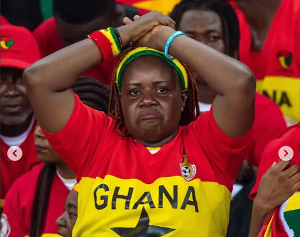Dr Abdul-Nashiru Issahaku is the new Governor of the Bank of Ghana (BoG), having been sworn into office last week by the President of the Republic. Apart from the usual political interest in any appointment to that high office, not much depth has gone into discussions about the direction of appropriate policy that the Governor must get busy with.
In other words, like most of our appointments, Dr. Issahaku’s name has not signalled much to the markets since he is an unknown commodity outside the walls of the BoG. Now there’s an argument that the shallowness of the Ghanaian financial market means that no matter who is appointed, there will not be much in terms of reaction or realignment - the market is simply too unrefined to read nuances (Disclaimer: I am slightly partial to this argument).
However, I fervently believe that the calibre of person who occupies the high office of BoG Governor will either inspire or drain confidence in important economy stakeholders depending on their profile, credibility and actions. Former Governors Acquah and Amissah-Arthur (our current Vice President) are favourably remembered by the financial and academic communities for sterling stewardships. Conversely, Dr Kofi Wampah will probably go down as perhaps the Governor with the least favourable rating ever (to put it mildy). Even if the Ghanaian financial market is shallow therefore, stakeholders are well able to judge the performance of Governors based on results - the proof of the pudding is after all in the eating.
But far from stroking anybody’s ego though, the performance of the Governor and the institution he leads are critical for the economic wellbeing of the population. With that in mind therefore, Dr Issahaku needs no reminding of the critical nature of his job. But who is he?
Who are you, Dr Issahaka?
While the media has been quick to regurgitate the official profile that was sent out in the BoG’s press briefing, I think it is important to correct the impression that Dr Issahaku is an ‘International Development Economist'. No, Dr Issahaku’s academic training makes him a Public Administration and Governance person, having specialised in International Affairs and Development for his doctorate. In fact, when one does a Google Scholar search for the new Governor, only one publication pops up. This is a 2000 paper in the Journal of Sustainable Development in Africa with the title “The political economy of economic reform in Ghana: Implications for sustainable development”. While I cannot instigate that this is the Governor’s only published paper to date, it is probably either the only peer-reviewed paper or the only one worthy of a Google Scholar mention. And the contents justify the title: the paper looks at the political interplays that shape the policy reform process in Ghana, or at least up to the time of his study). Interestingly, or rather worryingly, the search does not reveal any paper authored by the Governor on monetary economics, output stabilisation or even inflation.
To the uninitiated, the “Development” in his doctorate, coupled with his previous work experience in the World Bank, the African Development Bank, the United Nations Economic Commission for Africa (UNECA) and the Canadian International Development Agency (CIDA) makes it appear as though he is a Development Economist. Sadly, this is the narrative that many sections of the Ghanaian press have gone with. But Dr Issahaku is neither a Development Economist nor a Monetary Economist. In fact, the capacities in which he served in the aforementioned organisations confirm what his phd reveals as his speciality: Development Administration. I will resist the temptation to segway into explaining the difference except to say that a Development or Monetary Economist is distinctly qualified in the art of crafting monetary policy and managing an economy, while a Development Administrator implements ‘development projects’ (as they are called).
Why is this distinction important? To avoid the all too distractionary ‘personal attack’ argument, I will start to address this question by presenting a real world example as an illustration.
The US example
Ben Bernanke, the immediate past chairman of the United States Federal Reserve System (US Fed) is one of the most foremost Economic Historians (Disclosure: Economic History does not mean the History of Economics. It is one of the more fundamental Development Economics Disciplines that investigates policy throughout the years and draws lessons for policy today). Bernanke, who is one of the 50 most published economists in the world, is a leading expert in Great Depression-era monetary policy. It was therefore not by luck that the US Fed managed to prevent the Great Recession, which started in 2007, from turning into another Great Depression.
In a speech on Milton Friedman's ninetieth birthday (November 8, 2002), Bernanke concluded thus, "Let me end my talk by abusing slightly my status as an official representative of the Federal Reserve. I would like to say to Milton and Anna [Schwartz]: Regarding the Great Depression. You're right, we did it. We're very sorry. But thanks to you, we won't do it again”. About 6 years after he made this statement, Bernanke was to put in a mammoth shift as the Chairman of the Fed, with a combination of interest rate decreases, financial industry bailouts and asset buying that saved the United States (and the World) from another Great Depression.
What is the point of this narrative? The 2007-2009 Great Recession times were extraordinary economic times. The events that crystallized from the sub-prime mortgage market crisis threatened a fireball on the scale of what had not been anticipated even in the wildest fears of policymakers. Indeed, even at the height of the crisis, the IMF’s Chief Economist, Olivier Blanchard, clearly not appreciating the full extent of what was happening, declared in a 2008 paper that ‘the state of macro is good’, a view which would later see him lose some credibility in academic circles.
In the midst of the confusion however, arguably the most well-suited Economist in the world was at the helm of affairs at the Fed, and Bernanke's deep appreciation of the mistakes the Fed made in the 1930s and what the appropriate policy response should be resulted in the asset-buying program that undergirded the US economic recovery and ‘saved the world’.
And let me round this part of the discussion by pointing out that Bernanke’ successor, Janet Yellen, is a Professor Emerita of Economics who’s doctoral thesis was on ‘Employment, output and capital accumulation’ and who is perceived as being partial to ensuring that the economy provides jobs, even if it is at the expense of some moderate inflation (I might also mention that Yellen is married to Nobel-prize winning economist George Akerlof and they have a son, Robert, who teaches Economics at the University of Warwick). So anyways, the progression in the US game-plan is clear. After guaranteeing stability and recovering from a near collapse, the next step taken is to encourage job creation.
If you still consider further examples necessary, the same calibre of expert profile can be seen in Mark Carney and Mario Draghi, the current governor of the Bank of England and President of the European Central Bank respectively.
An agenda for Dr Issahaku
Why did I bother you with all this (recent) history? Well, the first thing is that it shows the incredible benefit of having a governor who is thoroughly prepared, has strong academic and/or industry experience and is well-versed in the art of monetary policy. The question is: do we have same in the new BoG Governor?
Many people have already been rushing to set the agenda for Dr Issahaku. Prime among the many, and not all informed, calls have been those to ensure stability of the cedi, ensure zero-financing of the government by the BoG and reduce inflation. Missing from these voices is a call for perhaps the most important economic indicator: that the Governor should work at ensuring that the economy is stimulated to create jobs. The lack of such a call is partially understandable as the BoG’s mandate in law is to ensure macro-economic stability. And yet it is my belief that this mandate has been interpreted narrowly by the BoG for all these years to mean only ensuring price stability, perhaps because the Bank does not want to stretch itself. For if I may ask, what is more potentially destabilising from a macro-economic point of view than for a large dependent population with very little effective demand (read as a large unemployed youth and pseudo-youth population)? And if indeed the law currently constrains the BoG in this regard, is Dr Issahaku willing to push for the Bank to be given ’new’ powers for output management and employment creation by making a strong economic case?
Even for the more traditional calls, what is the Govenor’s own interpretation of the appropriate policy actions?
Government Financing
Does Dr Issahaku recognise that there is an incipient banking sector crisis that is by itself squeezing liquidity, even discounting hikes in the policy rate? Taking cognisance of this fact, and with a combination of rising inflation eroding the value of government debts, falling asset prices (look at the real estate and stock markets), the unwillingness/inability of banks to make new loans to the private sector due to a large non-performing loans portfolio and the need for banks to rebalance their balance sheets (also additionally for the implementation of Basels II and III from 2017), does the Governor consider that a one-time opportunity window may have arisen for the government to pay-off its domestic debts by using its powers as the Sovereign issuer of the fiat cedi? Yes it goes against the conventional wisdom of the BoG, but is the Governor able to recognise extraordinary times as Bernanke was and at least ask for a modelling of the potential effects on the economy? If for nothing at all, the US pumped in almost $3 trillion dollars into it’s economy and had no worries with inflation; the UK did so with £325 billion and no inflation problems either. The ECB, previously constrained by the challenges of a mixed Euro-zone economy performance, has been a late arrival, but has recently started a €1 trillion stimulus program. Will paying off 40bn in domestic debt and then re-borrowing the same amounts at very low interest rates (because the high debt risk is gone and the banks have very little alternative channels to lend to) break the economy of Ghana? Or would the resultant 'flight to safety' present an opportunity to reset Ghanaian interest rates to the same lower rate band that prevails in la Cote d’Ivoire, Nigeria, Togo, Burkina Faso etc? Would that be good for the prospects of the real economy going forward? Or will the BoG simply go with the IMF-prescriptions? Prescriptions from the same body whose Chief Economist, had to do a mea culpa in 2012 after having published the “Ten Commandments for Fiscal Adjustment in Advanced Countries”? The same IMF whose policy prescriptions brought Greece to the brink, while it changed its own policy recommendations during the Greek crisis? I rest my case on this one, except to say that the key in this area is for the Governor to recognise the economic window. It would greatly inure to our benefit if one of Dr Issahaku's first tasks is to commission the wonks to simulate the effects of paying off our domestic debts this way.
Inflation
Anyone with even the smallest appreciation of Economics can go on about the usual policy reaction to inflation: raise the monetary policy rate. But what about the curious case of Ghana’s situation now (apologies Benjamin Button) where the policy rate appears to have a somewhat marginal effect on inflation, if any at all? The policy rate has consistently gone up in the last 2 years to 26% now, and yet inflation keeps going up (19.2% now). What should this tell us?
Well first, that these are no ordinary times. The task of managing the Ghanaian economy has never been easy, but the palpable failure of conventional monetary policy to achieve the BoG’s purpose surely must signal that the time for more unconventional measures may be now. Secondly, the inefficacy of the policy rate hikes to stem inflation makes it obvious that inflation in Ghana is perhaps not a monetary phenomenon. The difficulties in the real economy are well-documented and since food forms such a large proportion of the basket of goods used to calculate inflation, poor agricultural productivity is certainly a major cause of inflation in Ghana.
And yet until now, the BoG appears to be a one-trick pony that is out of it’s depth. How long will the Monetary Policy Committee (MPC) of the Bank of Ghana continue to raise the policy rate or sustain it at such high levels? Has the Committee considered a possible feedback of the high policy rate into the inflation causing mechanism? And by considering, I actually mean economic modelling and simulations to test the hypothesis that the policy rate may have crossed the tipping point and is now driving the growth in inflation in Ghana rather than containing it through its effect on cost of credit to business? If it has not, then again, one of Dr Nashiru’s first tasks should be tasking the wonks to do this.
Cedi Depreciation
The debate about the value of the cedi is usually couched in political terms more than in economic sense. And yet a return to fundamental economics teaches us that the value of a country’s currency adjusts to reflect the economy’s performance and actually helps it to navigate the business cycle. So typically, a country undergoing a recession would have it’s currency weakening either due to direct policy action (devaluation) or natural economic happenings (depreciation). This would in turn make it’s products cheaper, spur export demand and then drive a recovery. The interesting thing in Ghana’s situation however is that our export portfolio consists largely of basic goods whose demand is not really determined by effective prices. Until our export portfolio changes into manufactures therefore, we cannot really benefit from beggar-thy-neighbour policies in the conventional sense. Look a little deeper however and we should realise that we could reduce import-demand if our currency weakens because imports would become more expensive (and for empirical evidence, just check the drop in the Balance of payment numbers for 2014 and the first half of 2015). So if we cannot increase our exports, we can make our imports more expensive, and together with coordinated policy in the real economy (of course it is never that easy), incentivise competitive local production which also has the important benefit of job creation.
All these nuances are lost in the charged atmosphere of politicised debates on which party is able to maintain the value of the cedi. While that may have some benefit to those who engage in them, the more important consideration is to realise that there is a constant challenge to defend the value of the cedi because of the strong import-demand. How may we therefore break out of this cycle and employ the circumstance to our good? I posit that there is no one better placed to recognise the opportunities in the challenge and be the voice of reason to politicians than the independent Central Bank Governor.
Many of us economists hold the view that the Ghanaian cedi is over-valued. It would do the Ghanaian people a lot of good if the Governor puts the BoG wonks to work to model the exchange rate that is ideal for the Ghanaian economy and takes the steps necessary to achieve it. Ignore the vested interest calls for currency stability. Model it and take evidence-backed policy actions (apologies to His Excellency, the President).
(Interestingly, in October 2015 the IMF itself has called on Sub-Saharan African countries to allow their currencies to depreciate as a way to lessen the impact of the economic slowdown (IMF 2015). Of course their argument is from the conventional make your exports cheaper mantra, ignoring the composition of exports from the continent. Anyways, the more important point is that from the BoG’s apparent determination to defend the cedi, it appears they (IMF) have been telling our officials something different in private)
So what are you made off, Dr Nashiru?
These are the issues that leave me deeply unconvinced about the background of the new Governor of the Central Bank and the direction of monetary policy going forward. His research knowledge in the field is unknown and for really ‘strange times' such as this, it must surely be disconcerting for anybody who understands the enormous task that faces the country in terms of skilful economic management. The combination of decreasing commodity prices, aging mines (in case Anglogold Ashanti and Goldfield’s problems have not been well-interpreted), falling agricultural productivity (from an already low base), contracting industry, comparatively high utility costs and inefficiencies in supply, and a large (and unwisely increasing) quantum of dollar-denominated national debt stock among others present a unique combination of challenges in our national economic life.
A strong character in terms of background and competence, who possesses a revolutionary and expeditionary understanding of macro-economics is required to steer the ship. And where Dr Wampah failed, Dr Nashiru’s pedigree does not inspire confidence that he will do any better.
I am sorry but the new BoG Governor will have to prove me wrong on this. And I sincerely hope that he does because a lot is contingent on his performance. So Dr Abdul-Nashiru Issahaku, I humbly ask you again: show us what you are made of.
REFERENCES
IMF 2015. Regional Economic Outlook Sub-Saharan Africa: Dealing with the Gathering Clouds. Washington, D.C: International Monetary Fund, October 2015.
Remarks by Governor Ben S. Bernanke, At the Conference to Honor Milton Friedman, University of Chicago, Chicago, Illinois, November 8, 2002
Opinions of Wednesday, 4 May 2016
Columnist: Kofi Akuoko



















